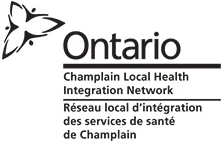
Case, Part 1
You are seeing a 16-yo teenager for a same day appointment, accompanied by her mother. She copes with a diagnosis of depression and anxiety, and has done well for many years on a stable dose of sertraline (Zoloft). Recently however, she has been started on erythromycin. About a week after starting erythromycin, she began feeling unwell and having nausea/vomiting and diarrhea. Initially, her mother thought that it was just the flu, but when she began stumbling and being confused, mother became worried and has brought her in to see you…
Serotonin syndrome (aka serotonin toxicity) is a potentially life-threatening condition caused by excessive serotonergic activity, most commonly due to serotonin medications. Features include autonomic instability, mental status changes, and neuromuscular hyperactivity.
Data is lacking on the incidence and prevalence of serotonin syndrome. Because many physicians are unaware of serotonin syndrome, it is felt that the majority of cases go unrecognized. Nonetheless, it is felt that the overall number of cases is increasing, due to the increasing use of SSRIs as well as polypharmacy (Boyer, 2005).
Symptoms are often described as a triad of:
- Cognitive effects: headache, agitation, hypomania, mental confusion, hallucinations, coma
- Autonomic effects: shivering, sweating, hyperthermia, vasoconstriction, tachycardia, nausea, diarrhea.
- Somatic effects: myoclonus (muscle twitching), hyperreflexia (manifested by clonus), tremor.
Consider the SHIVERS mnemonic (Christensen, 2006)
- S)hivering helps distinguish this from other hyperthermic syndromes
- H)yperreflexia often seen in mild to moderate cases
- I)ncreased temperature, likely due to muscular hypertonicity
- V)itals can be unstable, with tachycardia, tachypnea or labile blood pressure
- E)ncephalopathy with agitation, delirium, confusion can develop from hyperthermia
- R)estlessness due to excess serotonin activity
- S)weating as an autonomic response to excessive serotonin stimulation (as opposed to anticholinergic toxicity which has hot, dry skin)
Serotonin syndrome is mostly iatrogenic, and occurs in situations where medications lead to increased serotonin transmission such as:
- Synergistic medication use (e.g. using more than one serotonin medication)
- Drugs which inhibit breakdown of SSRIs, e.g. drugs that inhibit cytochrome P450 isoenzymes (e.g. erythromycin)
- Exposure to high amounts of a single serotonin medication
Medications that may contribute to Serotonin Syndrome include:
-
Amphetamines and derivatives
- 3,4-methylenedioxymethamphetamine
- Methylenedioxymetamphetamine (MDMA aka “Ecstasy”)
- Dextroamphetamine
- Methamphetamine
- Sibutramine (Meridia)
-
Analgesics
- Cyclobenzaprine (Flexeril)
- Fentanyl (Duragesic)
- Meperidine (Demerol)
- Tramadol (Ultram)
-
Antidepressants/mood stabilizers
- Buspirone (Buspar)
- Lithium
- Monoamine oxidase inhibitors (e.g., phenelzine [Nardil])
- Selective serotonin reuptake inhibitors (e.g., fluoxetine [Prozac])
- Serotonin-norepinephrine reuptake inhibitors (e.g., venlafaxine [Effexor])
- Serotonin 2A receptor blockers (e.g., trazodone)
- St. John’s wort (Hypericum perforatum)
- Tricyclic antidepressants (e.g., amitriptyline, nortriptyline [Pamelor])
-
Antiemetics
- Metoclopramide (Reglan)
- Ondansetron (Zofran)
-
Antimigraine drugs
- Carbamazepine (Tegretol)
- Ergot alkaloids
- Triptans
- Valproic acid (Depakene)
-
Miscellaneous
- Cocaine
- Dextromethorphan
- Linezolid (Zyvox)
- L-tryptophan
- 5-hydroxytryptophan
The history should include a detailed description of all medications such as:
- Prescribed medications
- Over-the-counter medications
- Recreational drugs
- Dietary supplements.
The Hunter Serotonin Toxicity Criteria are recommended for the diagnosis of serotonin syndrome (with 84% sensitivity and 97% specificity).
To fulfill the Hunter Criteria, a patient must have taken a serotonergic agent and meet at least one of the following conditions:
- Spontaneous clonus
- Inducible clonus plus agitation or diaphoresis
- Ocular clonus plus agitation or diaphoresis
- Tremor plus hyperreflexia
- Hypertonia plus temperature above 38ºC plus ocular clonus or inducible clonus
Differential Diagnosis
-
Anticholinergic syndrome
-
Malignant hyperthermia
-
Neuroleptic malignant syndrome (NMS):
-
Develops days to weeks after taking a dopamine antagonist (i.e. antipsychotic).
-
-
Tetanus
-
Overdose of sympathomimetic drugs
-
Meningitis
Encephalitis
-
Thyroid storm
-
Heat stroke
-
Delirium tremens
-
Sepsis
-
General observations
- Hyperthermia (in over 90% of cases) (Mills, 1997).
- Shivering
- Restlessness, agitation, confusion, akathisia (i.e. patient may be pacing)
-
Head / Neck
- Slow, continuous horizontal eye movements (ocular clonus)
- Pupils dilated
-
Vitals
- Temperature: Hyperthermia
- Blood pressure: Labile
- Respiratory rate: Tachypnea
-
Neurologic exam
- Deep tendon hyperreflexia in mild to moderate cases, especially in lower extremities
- Muscular rigidity in more severe cases
-
Dermatologic:
- Sweating
There are no specific laboratory tests for serotonin syndrome; testing is ordered to rule out other diagnoses for example:
- Leukocytosis
- Increased creatine kinase (CK) (elevated in > 90% of all cases)
- Iron deficiency
Mild cases
- Symptoms: hyperreflexia, myoclonus in mild cases
- Stop any causative serotonergic drugs
- Supportive care
- Mild cases generally resolve within 24 to 72 hours with conservative therapy and removal of the causative drugs.
- Most patients with mild cases do not require hospital admission.
Moderate to severe cases
- Symptoms: hypertonicity, hyperthermia, autonomic instability, or progressive cognitive changes)
- Admit to hospital
- Consider
- IV fluids
- For agitation / tremor
Medications;
- Benzodiazepines.
- Chlorpromazine and olanzapine; however, note that these are not routinely used because of the potential for adverse effects and toxicity.
- Cyproheptadine, a serotonin 2A antagonist
- For hyperthermia and increased muscle rigidity in severely ill patients
- Consider neuromuscular paralysis, sedation, and possible intubation.
- Avoid using multiple serotonin medications, e.g. do not use more than one SSRI
- Avoid prescribing an SSRI along with a medication that blocks the metabolism of an SSRI
- Use electronic ordering systems and/or electronic medication databases to check for interactions
When to Refer
Serotonin syndrome is a potentially dangerous issue, and thus, close monitoring and follow-up is required. If you suspect, referral your patient to an inpatient ED.
You are seeing a 16-yo teenager who has been stable for many years on Sertraline. Ever since being started on erythromycin however, she has quickly deteriorated.
You look up Sertraline and Erythromycin, and discover that sertraline is metabolized by CYP3A4, and it turns out that erythromycin inhibits CYP3A4. You wonder about serotonin syndrome, and speak with the psychiatrist on call at your local emergency department. The psychiatrist agrees with your suspicion, and mother brings the patient to the emergency department, where the patient is seen by the emergency physician.
Ables AZ, Nagubilli R. Prevention, diagnosis and management of serotonin syndrome. Am Fam Physician. 2010;81(9):1139-1142.
Boyer EW, Shannon M. The serotonin syndrome. N Engl J Med. 2005;352:1112-1120.
Christensen RC: Get serotonin syndrome down cold with SHIVERS, 2006; 5(2). Retrieved Apr 18, 2016 from http://www.currentpsychiatry.com/the-publication/past-issue-single-view/get-serotonin-syndrome-down-cold-with-shivers/6a4a5232af6388b81b77333473330085.html#0502CP_Pearls2-box1
Mills KC. Serotonin syndrome. A clinical update. Crit Care Clin. 1997;12(4):763-783.
Written by Anne Lebouthillier, Medical Student, uOttawa, Class of 2019.
Reviewed by members of the Family Medicine Program at the University of Ottawa, including Dr's Farad Motamedi; Mireille St-Jean; Eric Wooltorton (2014).
This information is offered ‘as is' and is meant only to provide general information that supplements, but does not replace the information from a qualified expert or health professional. Always contact a qualified expert or health professional for further information in your specific situation or circumstance.
You are free to copy and distribute this material in its entirety as long as 1) this material is not used in any way that suggests we endorse you or your use of the material, 2) this material is not used for commercial purposes (non-commercial), 3) this material is not altered in any way (no derivative works). View full license at http://creativecommons.org/licenses/by-nc-nd/2.5/ca/






